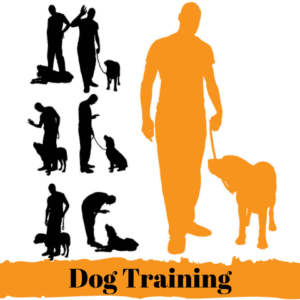Many dogs experience anxiety, whether due to separation, loud noises like thunderstorms or fireworks, or everyday stress.
Today I want to talk with you about CBD and CBDA for Anxiety in Dogs. Or if you’d prefer to cut to the chase you can order Ellevet’s CBD+CBDA oil here!
CBD+CBDA oil has emerged as a promising option for helping dogs manage anxiety-related behaviors. This natural approach can provide a sense of calm and improve a pet’s overall well-being.
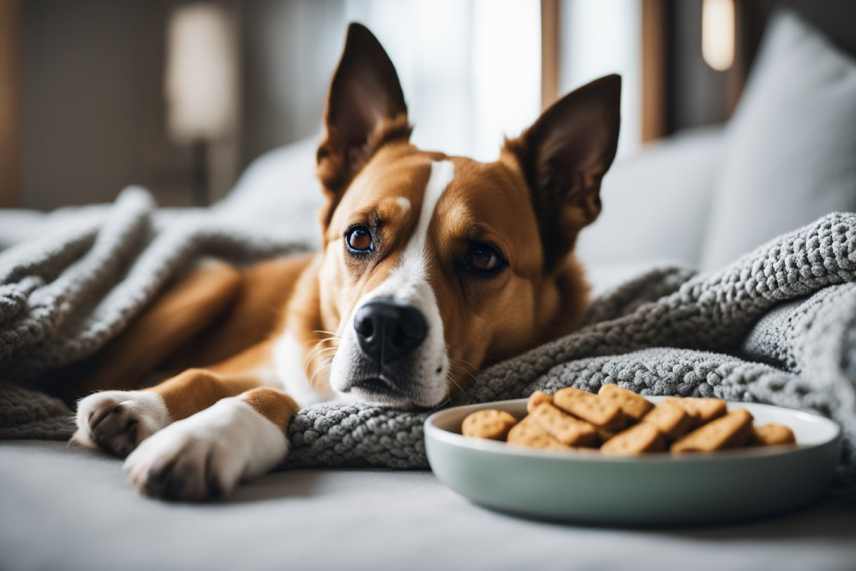
Recognizing anxiety in dogs can be challenging. Common signs include excessive barking, pacing, destructive behavior, or even hiding. Pet owners can learn to identify these behaviors and understand their causes, which is crucial for effective management.
Ellevet’s CBD+CBDA oil offers potential relief for anxious dogs. By incorporating this oil into a pet’s routine, owners may notice significant improvements in their dog’s behavior and comfort level in stressful situations. Understanding the benefits of this treatment can empower pet owners to make informed decisions about their furry friends’ mental health.
Understanding Anxiety in Dogs
Anxiety in dogs can manifest in various ways, making it important for owners to closely observe their pets. Recognizing symptoms and identifying triggers can greatly assist in managing anxiety effectively.
Recognizing Anxiety Symptoms
Dogs may display several behaviors when experiencing anxiety. Common symptoms include:
- Shaking or trembling: Often seen during storms or fireworks.
- Pacing: Dogs may walk in circles or back and forth when stressed.
- Excessive licking: This can be a self-soothing behavior.
- Drooling: Increased salivation might indicate heightened stress levels.
- Barking or howling: Vocalizations can be a plea for help or a response to fear.
- Chewing or destructive behavior: Dogs might chew furniture or belongings when anxious.
It’s crucial for owners to monitor their dog’s behavior, especially in response to known stressors. Recognizing these signs early can help in addressing the anxiety promptly.
Common Anxiety Triggers in Dogs
Several triggers can lead to anxiety in dogs, with some being more prevalent than others.
- Separation anxiety: This occurs when a dog is left alone, leading to stress behaviors.
- Loud noises: Fireworks and thunderstorms are common culprits, often causing panic.
- Changes in environment: Moving homes or introducing new family members may disturb a dog’s sense of security.
- Scary encounters: Encounters with unfamiliar animals, people, or situations can lead to increased anxiety.
Understanding these triggers can empower pet owners to create a more comforting environment for their dogs. Taking proactive measures can help minimize anxiety-related behaviors.
The Science Behind CBD+CBDA
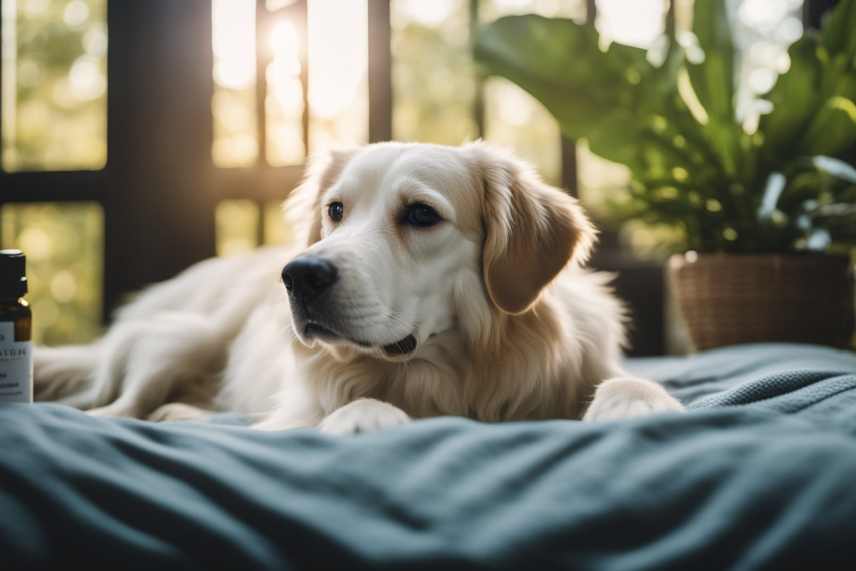
Cannabinoids like CBD and CBDA interact with the body’s endocannabinoid system, which plays a crucial role in regulating various physiological processes. Understanding this system helps clarify how these compounds can alleviate anxiety in dogs, especially in stressful situations.
Cannabinoids and the Endocannabinoid System
The endocannabinoid system (ECS) consists of receptors, endocannabinoids, and enzymes, creating a complex network that influences mood, stress response, and overall well-being. CBD (cannabidiol) and CBDA (cannabidiolic acid) are phytocannabinoids derived from the hemp plant that interact with this system.
These compounds primarily bind to CB1 and CB2 receptors located in the brain and throughout the body. While THC (tetrahydrocannabinol) is known for its psychoactive properties, CBD and CBDA do not produce a “high.” Instead, they can regulate serotonin levels, a neurotransmitter that significantly impacts mood and anxiety levels.
Efficacy of CBD+CBDA for Canine Anxiety
Studies indicate that CBD and CBDA can effectively reduce anxiety in dogs. Many pet owners report noticeable improvements in their pets experiencing separation anxiety, noise phobias, or general stress after using CBD+CBDA products.
The combined action of these cannabinoids helps modulate the dog’s stress response without the adverse effects associated with some pharmaceuticals. Proper dosing is essential; pet owners should consult with a veterinarian who understands cannabinoid therapy for optimal results.
Animal studies have shown that CBD can reduce the physiological effects of stress, such as increased heart rate. Understanding the dosage and reaction helps pet owners better manage their pets’ anxiety symptoms.
The Safety and Regulation of CBD Products
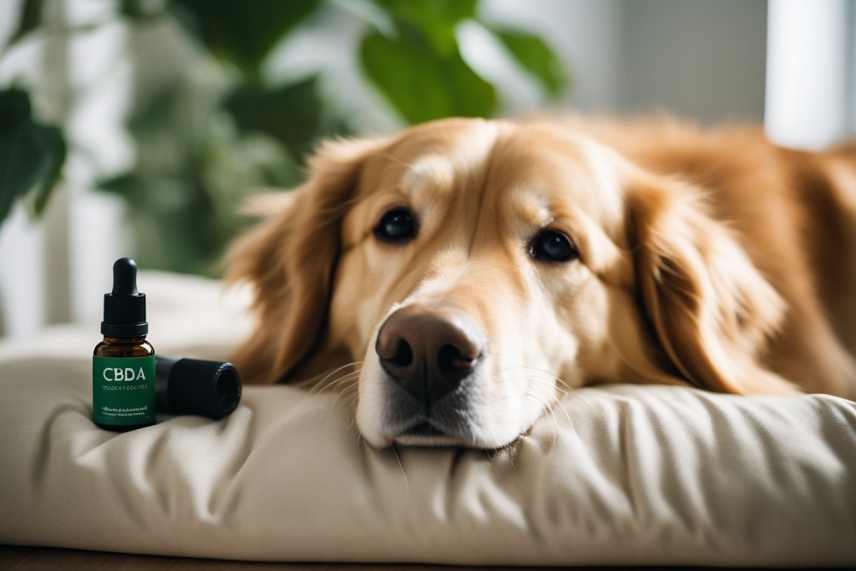
The safety and regulation of CBD products are crucial for ensuring that they are both effective and safe for dogs. Awareness of quality, sourcing, and understanding product testing helps pet owners make informed decisions.
Quality and Sourcing of CBD Oil
When selecting CBD oil for dogs, it is vital to consider the quality and sourcing of the product. High-quality CBD oil is typically sourced from organic hemp plants. These plants are less likely to contain harmful pesticides or contaminants. Full-spectrum products may offer additional benefits due to their range of cannabinoids, but they must still be scrutinized for safety.
Pet owners should look for brands that provide transparency about their sourcing methods. Ethical farming practices and sustainable extraction methods, such as ethanol extraction, help ensure the purity of the oil. Any reputable brand will offer detailed information about the source of their CBD oil and the processes used to create it.
Understanding the Certificate of Analysis
The Certificate of Analysis (CoA) is an essential document that verifies a CBD product’s safety and composition. This certificate is typically provided by independent laboratories and includes crucial information about the product’s cannabinoid profile, including active ingredients like CBD and CBDA.
The CoA also shows the testing results for contaminants such as heavy metals, pesticides, and solvents. Pet owners should always request the CoA for any CBD product they consider. It is a vital tool for confirming that the product meets safety standards and contains the ingredients advertised.
Side Effects and Drug Interactions
While CBD is generally considered safe for dogs, it can cause side effects. Common side effects may include drowsiness, dry mouth, or gastrointestinal upset. It is important for pet owners to monitor their dogs after administering CBD oil, especially during the initial dosage.
Additionally, CBD can interact with other medications. If a dog is currently taking prescribed medication, it is essential to consult a veterinarian before introducing CBD oil. This ensures that there are no adverse interactions that could lead to complications. Understanding both the benefits and risks contributes to responsible pet care.
Ellevet’s Role in Canine Anxiety Relief
Ellevet offers innovative solutions for managing canine anxiety, particularly through its CBD+CBDA oil formulation. This section explores the specific formulation used by Ellevet as well as findings from relevant research.
Ellevet’s CBD+CBDA Oil Formulation
Ellevet’s CBD+CBDA oil is designed to target anxiety in dogs effectively. This formulation combines the benefits of both CBD and CBDA, which can work synergistically to provide a calming effect.
The oil is derived from high-quality cannabis plants and undergoes rigorous testing to ensure safety and efficacy. Each dosed drop contains precise ratios, allowing for tailored administration based on the dog’s specific needs.
Pet owners appreciate the ease of administration through a dropper or incorporation into treats. Many also choose Ellevet’s Calm and Comfort chews, which offer a convenient alternative to oil. This formulation is free from psychoactive properties, making it safe for regular use.
Case Studies and Clinical Trials
Clinical trials, including studies conducted at Colorado State University, demonstrate the efficacy of Ellevet’s products. Research indicates that dogs experienced noticeable reductions in anxiety levels when given the CBD+CBDA oil.
In one trial, over 80% of participating dogs showed improvement in anxiety-related behaviors. Owners reported less barking, reduced pacing, and an overall calmer demeanor during stressful situations like thunderstorms and fireworks.
Case studies often highlight individual stories that align with these findings. Many owners noted a marked difference in their dog’s anxiety responses after incorporating Ellevet’s products into their routines. These results highlight the potential of CBD+CBDA oil as a robust option for managing canine anxiety.
Administering CBD+CBDA to Dogs
Proper administration of CBD+CBDA is essential for achieving the desired effects in dogs, including anxiety relief. Pet owners should consider recommended dosages, preferred forms of administration, and ways to monitor their dog’s response.
Recommended Dosages and Forms
Determining the right dosage of CBD+CBDA for dogs depends on their weight, condition, and specific product strength. A common guideline suggests starting with 1-2 mg of CBD per 10 pounds of body weight. For example:
| Dog Weight | Starting Dosage |
|---|---|
| 10 lbs | 1-2 mg |
| 20 lbs | 2-4 mg |
| 50 lbs | 5-10 mg |
| 70 lbs | 7-14 mg |
Forms of CBD+CBDA available for dogs include tinctures and treats. Tinctures allow for precise dosing and can be mixed into food. CBD treats provide a more palatable option, especially for picky eaters. Always consult a veterinarian before starting treatment to tailor the dosage based on individual needs.
Monitoring Your Dog’s Response to Treatment
Observing a dog’s behavior after administering CBD+CBDA is crucial. Pet owners should look for changes in anxiety levels, appetite, and overall demeanor. Signs indicating positive response may include relaxed body language, reduced barking, and improved interaction with family members.
On the other hand, if a dog displays increased aggression or lethargy, it may signal that the dosage is too high or unsuitable. Regular check-ins with a veterinarian can help adjust the dosage as needed.
Keeping a journal to track behavior changes will provide helpful insights for both pet owners and veterinarians. Monitoring ensures the treatment is effective and safe for the dog’s unique circumstances.
Considerations Beyond CBD+CBDA Therapy
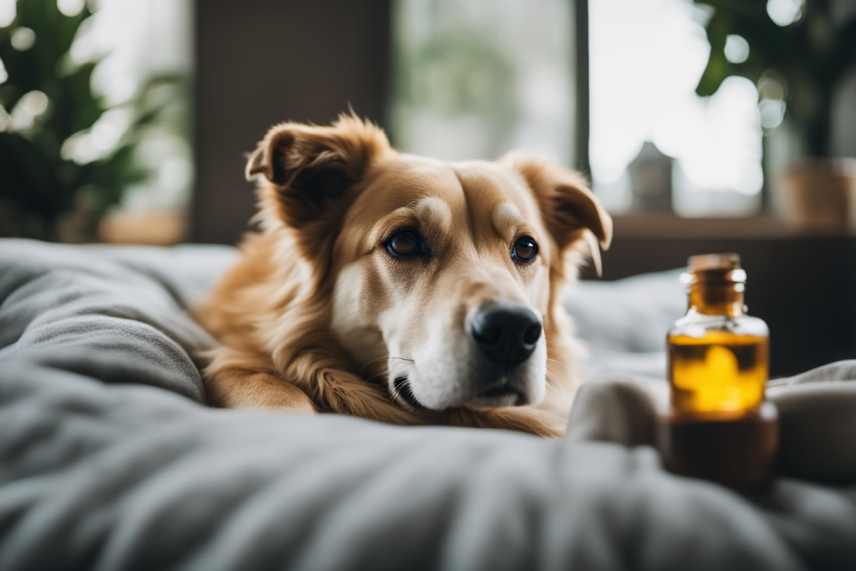
While CBD+CBDA therapy offers significant benefits for anxiety in dogs, other treatments and professional guidance also play vital roles in comprehensive anxiety management. Understanding alternative solutions and veterinary input can enhance the effectiveness of any chosen therapy.
Alternative and Complementary Treatments
Pet owners may consider several alternative therapies alongside CBD+CBDA to address anxiety in dogs. These options include behavior modification techniques, aromatherapy, and natural supplements.
- Behavior modification can involve training practices that help dogs adapt to stressors, such as loud noises or separation.
- Aromatherapy utilizing calming scents, like lavender or chamomile, may help induce relaxation.
- Natural supplements, including L-theanine and valerian root, are also options that some owners find beneficial.
It’s important to evaluate each method carefully because individual dogs may react differently. Combining multiple approaches may offer a more effective, well-rounded strategy in managing symptoms like trembling or confusion during stressful events.
The Role of Veterinarians in Anxiety Management
Veterinarians are crucial in managing a dog’s anxiety. They can assess the pet’s health, consider conditions such as arthritis or cancer, and recommend individualized treatment plans.
During visits, the veterinarian may evaluate behavioral symptoms, ensuring underlying health issues are addressed. Collaboration with pet owners allows for a comprehensive understanding of anxiety triggers, whether they stem from loud noises or new environments.
Veterinarians can also discuss potential drug interactions when combining therapies, ensuring safety in treatment protocols. They may suggest specific medications for severe anxiety cases, helping to improve the dog’s quality of life. For dogs affected by seizures or inflammation due to other health conditions, vet guidance remains essential in maintaining optimal health and behavior.
FAQs: CBD and CBDA for Anxiety in Dogs

Many pet owners seek clarity about anxiety in dogs and the role of CBD+CBDA oil. Understanding the signs of anxiety, how the oil works, and the proper usage can help ensure the well-being of anxious dogs.
What are the signs that my dog might be experiencing anxiety?
Dogs may exhibit various signs of anxiety, including excessive barking, pacing, hiding, or destructive behavior. Changes in appetite or elimination habits can also indicate stress. Additionally, some dogs may display physical symptoms like trembling or a tucked tail.
How can CBD+CBDA oil alleviate symptoms of anxiety in dogs?
CBD+CBDA oil interacts with the endocannabinoid system in dogs. This interaction may help to modulate anxiety responses and promote a sense of calm. Many pet owners report noticeable improvements in their dogs’ behavior during stressful situations after administering the oil.
Are there any scientific studies supporting the use of CBD+CBDA for canine anxiety?
Some studies have explored the effects of CBD on anxiety in pets. Research indicates that CBD can reduce anxiety-related behaviors in dogs. While more studies are needed to fully understand its efficacy, preliminary findings show promise for therapeutic use in anxious dogs.
What dosage of CBD+CBDA oil is considered safe and effective for treating dog anxiety?
Dosage can vary based on the dog’s weight, size, and specific needs. It is crucial to consult with a veterinarian for personalized advice. Many brands provide guidelines, but starting with a low dose and gradually increasing it as needed is often recommended.
Can CBD+CBDA oil be used alongside other treatments for anxiety in dogs?
Yes, many pet owners combine CBD+CBDA oil with behavioral therapy, training, or other medications. This multi-faceted approach can provide comprehensive support for anxious dogs. Consulting a veterinarian can help determine the best combination of treatments.
What should pet owners look for when choosing CBD+CBDA products for their anxious dogs?
Pet owners should seek products made from high-quality, organic hemp. Third-party lab testing and clear labeling of ingredients are essential for ensuring safety and efficacy. Understanding the concentration of CBD+CBDA and choosing products specifically designed for pets will contribute to better outcomes.
How to Train a Dog to Be Calm: Effective Strategies and Techniques
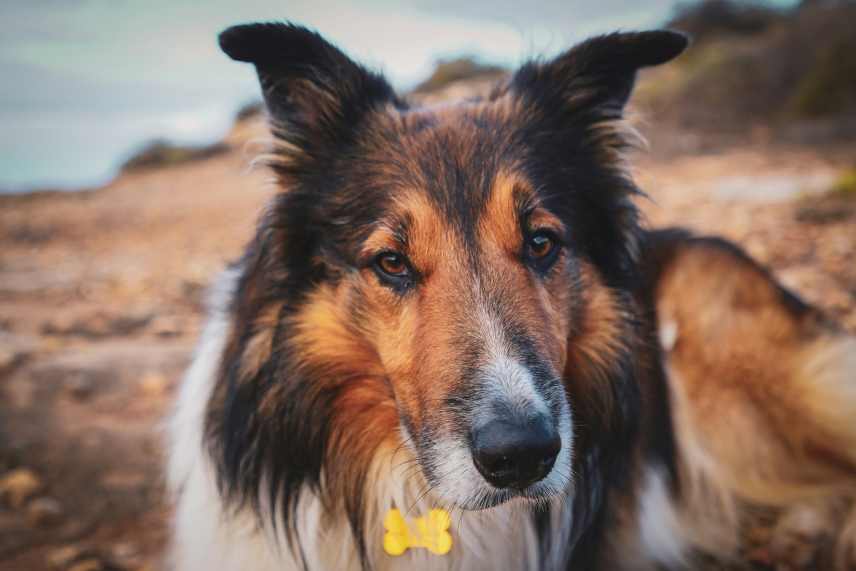
As we said above, knowing how to calm a dog is essential for both their well-being and the harmony of your household. Whether your dog is naturally high-energy or prone to anxiety, implementing effective training techniques can help foster a sense of calmness and relaxation.
This article will explore proven strategies and methods to teach your dog to be calm in various situations.
Continue reading: How to Train a Dog to Be Calm
Calming Canines: How to Help Your Anxious Dog Recover After a Stressful Event
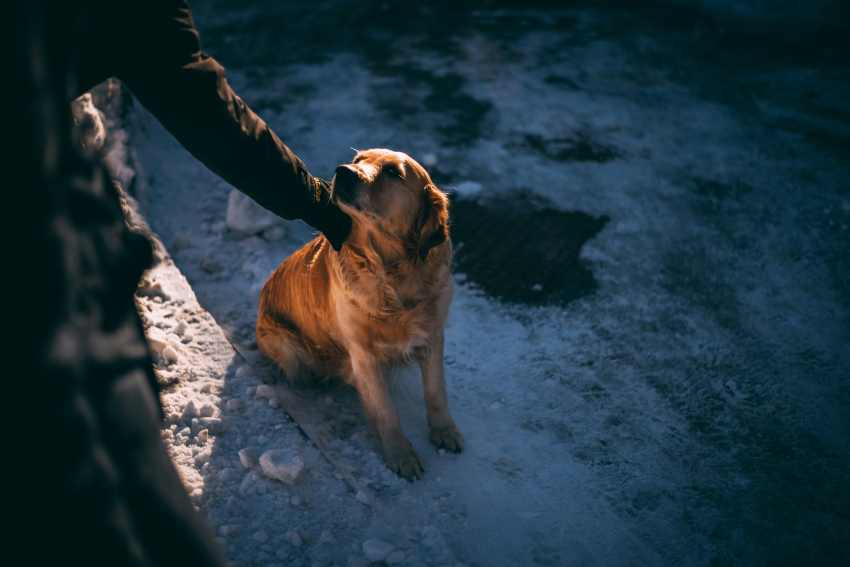
Helping an anxious dog recover after a stressful event requires patience, understanding, and a tailored approach. By creating a safe haven, implementing calming techniques, engaging in relaxation activities, maintaining consistency, and seeking professional support when needed, you can provide your furry companion with the comfort and support they need to overcome their anxiety and thrive.
Continue reading: How to Help Your Anxious Dog Recover After a Stressful Event
